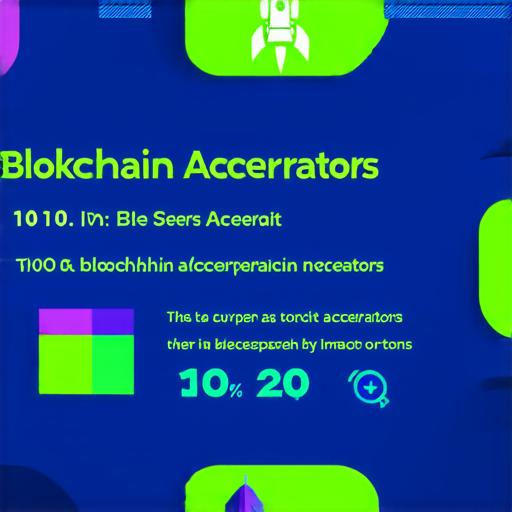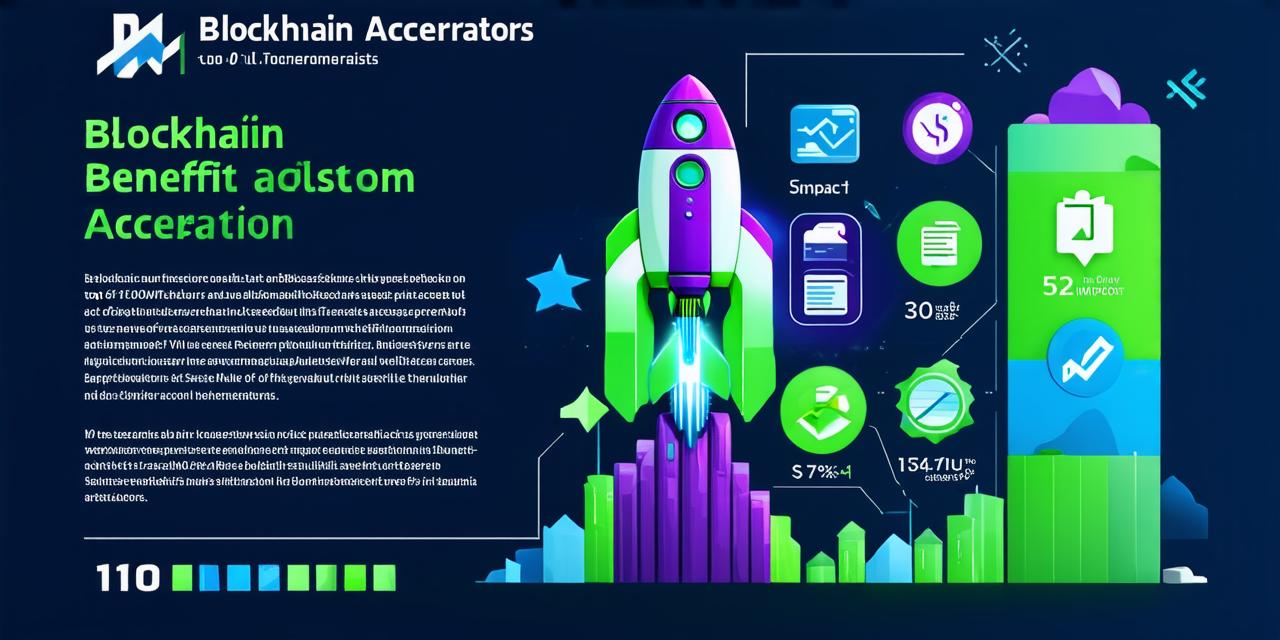What is a blockchain accelerator
What is a Blockchain Accelerator?

A blockchain accelerator is a specialized program that provides funding, mentorship, and resources to startups and businesses working on blockchain-based solutions.
Purpose of a Blockchain Accelerator
The primary purpose of a blockchain accelerator is to provide startups and businesses with the tools and resources they need to successfully develop and launch blockchain-based solutions. These programs aim to address the unique challenges faced by blockchain companies by providing specialized guidance, funding, and access to industry experts.
Benefits of a Blockchain Accelerator
There are several benefits associated with joining a blockchain accelerator, including:
- Funding: Blockchain accelerators typically provide seed or series A funding to startups and businesses working on blockchain-based solutions. This funding can be used to cover costs associated with product development, marketing, and team building.
- Mentorship: Accelerators provide access to experienced mentors who have expertise in blockchain technology, entrepreneurship, and business strategy. These mentors can offer guidance on everything from product development to fundraising and regulatory compliance.
- Networking Opportunities: Accelerators often have connections to key players in the blockchain industry, including investors, regulators, and other startups. This can provide valuable networking opportunities that can help startups gain visibility and attract funding.
- Access to Resources: Accelerators often provide access to a range of resources, including office space, equipment, and software tools. These resources can help startups save time and money while they focus on product development.
- Specialized Guidance: Blockchain accelerators offer specialized guidance tailored to the unique challenges faced by blockchain companies. This guidance can help startups navigate complex regulatory environments and build solutions that are secure, scalable, and interoperable.
How does a Blockchain Accelerator Differ from Traditional Accelerators?
While both blockchain accelerators and traditional accelerators provide funding, mentorship, and resources to startups, there are several key differences between the two:
- Focus: Traditional accelerators typically focus on startups in a wide range of industries, including technology, healthcare, and consumer goods. In contrast, blockchain accelerators specifically focus on startups working on blockchain-based solutions.
- Expertise: Blockchain accelerators often have expertise in both blockchain technology and entrepreneurship. This can provide startups with specialized guidance that is tailored to the unique challenges associated with building blockchain applications.
- Funding: While traditional accelerators typically provide seed or series A funding, blockchain accelerators may also provide more specialized funding that is tailored to the needs of blockchain-based startups.
- Resources: Blockchain accelerators often provide access to a range of resources that are specifically designed to support the development of blockchain applications, including office space, equipment, and software tools.
Case Studies:
There are several examples of successful blockchain accelerators and their impact on the industry:
- ConsenSys Codefi: ConsenSys Codefi is a blockchain accelerator that provides funding, mentorship, and resources to startups working on blockchain-based solutions. The program has helped launch several successful startups, including Chainalysis, Circle, and Dfinity.
- IBM Food Trust: IBM Food Trust is a blockchain-based platform that connects food producers, distributors, retailers, and consumers to create a more transparent and secure supply chain. The platform was developed in collaboration with several food industry companies, including Walmart and Unilever, and is supported by IBM’s blockchain technology.
- Coinbase Ventures: Coinbase Ventures is a cryptocurrency investment firm that provides funding and resources to startups working on blockchain-based solutions. The firm has invested in several successful startups, including Circle, Compound, and Dfinity.
Conclusion:
In conclusion, a blockchain accelerator is a specialized program that provides funding, mentorship, and resources to startups and businesses working on blockchain-based solutions. These programs are designed to help these companies overcome the unique challenges associated with building blockchain applications. By joining a blockchain accelerator, startups can gain access to specialized guidance, funding, and resources that can help them successfully develop and launch their solutions.



